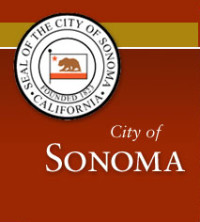Valley-wide, vintners have been rejoicing over the recent rains. But there’s one wine industry company hoping the precipitation will come to a stop. Carneros Vintners, Inc., a division of the Vintners Group, recently broke ground on what will be the largest custom crush facility in the Carneros region.
Construction is set to begin as soon as final permits have been obtained. However, crews are worried that weather might throw off the timing for a mid-July opening, just in time for the 2009 harvest.
According to Tyson Rippey, vice president and general manager for the Vintners Group, the rain is bittersweet. “During this wet patch, we’ve been meeting with the contractor and winemaker to keep things moving. If all goes as planned and the weather cooperates, we’re confident we can meet our objective.”
The Vintners Group was founded by Dennis Rippey and is owned by the Rippey family, which launched Lodi Vintners in 1991, a custom crush facility that has grown to six million gallons in capacity. Dennis Rippey said the company had been planning an expansion for some time and is pleased that they found the Sonoma property, calling it a “hub for local fruit.”
The new facility will be located on Stage Gulch Road. It will provide storage for bottles, case goods and bulk wine in 52,000 square feet of temperature-controlled warehouse space.
CalTrans public affairs officer Bob Haus responded to questions about bringing a large-scale, traffic-intensive business to this notoriously dangerous stretch of Stage Gulch Road. “At present, we are in negotiations with Sonoma County to widen this stretch of road and realign for a left turn lane into the business,” said Haus. “It’s a pretty environmentally sensitive area so we need to get all the issues worked out before we proceed.”
The business plan for this project includes expanding from one million gallons to three million, with the flexibility to handle both large and small lots. The facility will have different sized presses and feature an elevated gravity flow crush pad for gently handling fruit while trucks are being unloaded. There will also be a high-speed bottling line with a wet-glue labeling component. The wet glue process appeals to winemakers both large and small as it dramatically cuts the cost of purchasing adhesive labels.
“We offer a full range of options to take customers all the way from grapes to wine to bottle very economically,” said winemaker Dave Dobson. Dobson, most recently with Artesa Vineyards and Winery, brings years of wine industry experience to this new venture. Having managed custom crush at Artesa as well as other facilities, he understands that clients are entrusting their winemaking operations to him. “Because our clients can’t be on site full-time, we’re put in the enviable position of managing their wine for them. We are their eyes, ears and taste buds and they expect nothing less than exceptional quality, which is what we do best.”
According to Dobson, plans are for the facility to crush 2,000 to 3,000 tons the first year, twice that the next and grow from there. “We want to be responsive to the needs and wants of our clients and will respond as necessary.”
As the demand for custom crush increases, The Vintners Group is capitalizing on the niche. Potential clients include existing wineries that need extra capacity and winemakers that have been pushed out of custom crush facilities by the in-house brand. In instances where space and equipment are already at a premium, the house brand takes precedence, forcing custom crush clients to go elsewhere.
Another niche are the virtual brands – winemakers who don’t have a facility and never plan on building one.
“The virtual winery is a smart play in these economic times,” said Dobson. “Everyone’s cost conscious these days so companies with fewer employees and less overhead make sense. The virtual brand phenomenon is skyrocketing in California with thousands of brands and hundreds of thousands of cases being produced. With our help on the winemaking side, these wineries can get out there and do what’s important – sell wine.”
Weather slows construction of custom crush facility on Stage Gulch
More from NewsMore posts in News »




